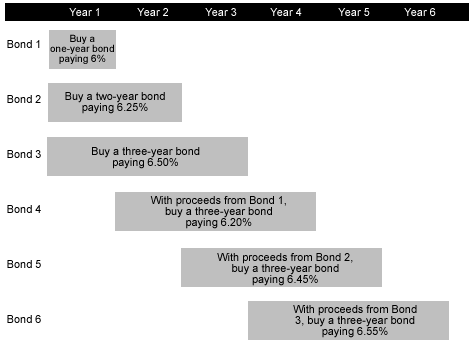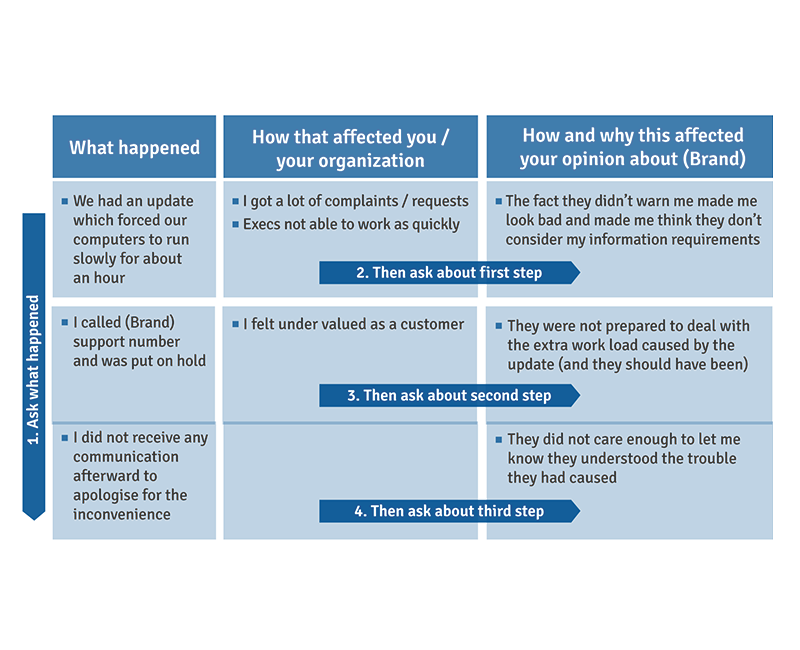Laddering is a research technique used in marketing. It explores consumer motivations and values.
Laddering helps marketers understand why consumers make certain choices. It involves asking a series of questions that dig deeper into the reasons behind purchasing decisions. This technique reveals the underlying motivations, beliefs, and values of consumers. Marketers can use these insights to create targeted and effective marketing strategies.
Laddering is valuable for developing products and advertising that resonate with consumers. It helps in identifying key attributes that drive consumer behavior. By understanding these factors, businesses can better meet customer needs and preferences. This approach ensures marketing efforts are more aligned with what truly matters to the target audience.

Credit: investinganswers.com
Introduction To Laddering
Laddering is a smart strategy in finance. It involves spreading investments over different periods. This reduces risks and increases returns.
Laddering Concept
The laddering concept is simple yet effective. Imagine a ladder with steps. Each step represents a different investment period. You invest in bonds, certificates of deposit (CDs), or other fixed-income products. These investments mature at different times. This creates a steady income stream.
For example, if you have $10,000, you could invest $2,000 in 1-year bonds, $2,000 in 2-year bonds, and so on up to 5 years. When the 1-year bond matures, you reinvest in a new 5-year bond. This keeps the ladder going.
Importance In Financial Strategy
Laddering plays a crucial role in financial strategy. It helps manage interest rate risk. Interest rates change over time. With a laddering strategy, not all investments are affected at once. This balances your portfolio.
Additionally, laddering provides liquidity. Some investments mature soon, giving you access to cash. This is helpful in emergencies or for reinvestment.
| Benefit | Description |
|---|---|
| Risk Management | Reduces exposure to interest rate changes |
| Steady Income | Ensures regular returns from investments |
| Liquidity | Provides access to cash from maturing investments |
In summary, laddering is a key financial tool. It offers balanced risk, steady returns, and liquidity.
Types Of Laddering
Understanding the different types of laddering can help you optimize your investments. Laddering is a technique used to manage and reduce risks while ensuring a steady stream of income. Below, we will explore two popular types of laddering: Bond Laddering and CD Laddering.
Bond Laddering
Bond laddering involves buying bonds with different maturity dates. This spreads the investment over time. The main goal is to manage interest rate risks and provide regular income.
Here are some benefits of bond laddering:
- Diversification: Spreads investment across various bonds
- Risk Management: Reduces the impact of interest rate changes
- Regular Income: Ensures a steady cash flow
Investors can reinvest the matured bonds into new bonds. This continues the laddering strategy and maintains the benefits.
Cd Laddering
CD laddering uses a similar approach but with Certificates of Deposit (CDs). CDs have fixed interest rates and maturity dates.
Here is how CD laddering works:
- Purchase multiple CDs with different maturity dates.
- Reinvest the matured CD into a new long-term CD.
- Repeat the process to maintain a ladder.
Benefits of CD laddering include:
- Predictable Income: Fixed interest rates provide steady returns.
- Flexibility: Access to funds at regular intervals.
- Safety: CDs are insured by the FDIC.
CD laddering is ideal for conservative investors seeking low-risk options. This method balances liquidity and returns.
Benefits Of Laddering
Laddering is a powerful investment strategy. It spreads investments across different maturities. This method provides several benefits for investors. These benefits include risk management and liquidity enhancement.
Risk Management
Laddering helps in managing risks effectively. By spreading investments over time, it reduces the impact of interest rate changes. If interest rates fall, only a part of the investment is affected. The rest remains secure in higher-yield investments. This diversity shields the investor from sudden rate drops.
Diversification is a key element of laddering. It prevents putting all eggs in one basket. This strategy minimizes the potential loss from any single investment. Investors can sleep peacefully knowing their investments are spread out.
Liquidity Enhancement
Laddering enhances liquidity by providing regular access to cash. Investments mature at different times, offering periodic returns. This schedule ensures funds are available when needed. It helps in planning for future expenses without liquidating long-term assets.
With laddering, investors can maintain a balance between long-term and short-term goals. They can reinvest matured funds in new opportunities. This approach keeps the portfolio dynamic and adaptable.
The table below summarizes the benefits:
| Benefit | Description |
|---|---|
| Risk Management | Reduces impact of interest rate changes |
| Diversification | Minimizes potential loss from single investment |
| Liquidity Enhancement | Provides regular access to cash |
| Flexibility | Allows reinvestment in new opportunities |
How To Implement Laddering
Implementing laddering can enhance your business strategy. It helps identify customer needs and desires. Follow these steps to effectively utilize laddering in your business.
Step-by-step Guide
Here is a simple step-by-step guide to implement laddering:
- Identify the target audience: Understand who your customers are.
- Prepare the questions: Create questions that dig deeper into their needs.
- Conduct interviews: Talk to your customers and ask your prepared questions.
- Analyze responses: Look for patterns and common themes in their answers.
- Create a ladder: Map out the connections between responses.
- Develop strategies: Use the ladder to create targeted marketing strategies.
Common Mistakes
Avoid these common mistakes when implementing laddering:
- Not preparing enough: Make sure you have a clear plan before starting.
- Asking leading questions: Questions should be open-ended and neutral.
- Ignoring negative feedback: Every response is valuable, even negative ones.
- Rushing through interviews: Take your time to get detailed answers.
- Not following up: Follow up on interesting responses for more insights.
By avoiding these mistakes, you can get the most out of laddering. Use this tool to understand your customers better and create effective strategies.
Laddering In Different Markets
Laddering is a versatile investment strategy. It can be used in various markets. This technique allows investors to manage risk and optimize returns. Below, we explore laddering in different markets, including the stock market and real estate.
Stock Market
Laddering in the stock market involves buying shares at different times. This approach helps spread risk over multiple entry points. Investors can take advantage of market fluctuations.
Here’s a simple example of laddering in the stock market:
| Purchase Date | Stock Price | Number of Shares |
|---|---|---|
| January 1 | $100 | 10 |
| February 1 | $105 | 10 |
| March 1 | $110 | 10 |
By spreading purchases over time, investors average out the cost. This reduces the impact of short-term volatility. It also provides more flexibility in managing their investments.
Real Estate
Laddering in real estate means acquiring properties at different times. This strategy helps to diversify the portfolio and spread risk.
Consider the following steps to implement laddering in real estate:
- Buy a residential property in Year 1.
- Purchase a commercial property in Year 3.
- Acquire a vacation rental in Year 5.
Each property type offers different income streams. Residential properties provide steady rental income. Commercial properties often yield higher returns. Vacation rentals can offer seasonal income spikes.
By diversifying property types and purchase times, investors can stabilize returns. This minimizes the impact of market downturns and optimizes long-term growth.

Credit: www.forbes.com
Real-life Laddering Examples
Understanding laddering can be complex without real-life examples. In this section, we explore two case studies that illustrate how laddering works in practice. These examples demonstrate its effectiveness in uncovering deeper consumer insights.
Case Study 1
A renowned coffee brand wanted to understand why customers preferred their premium blend. They conducted laddering interviews to uncover the underlying reasons. The results were eye-opening.
| Interview Question | Consumer Response |
|---|---|
| Why do you choose our premium blend? | It tastes better. |
| Why does the taste matter to you? | It makes my mornings better. |
| Why is a better morning important? | I feel more productive throughout the day. |
| Why is productivity important? | It helps me achieve my goals. |
The laddering technique revealed that customers associated the premium blend with personal achievement. This insight allowed the brand to tailor their marketing strategies effectively.
Case Study 2
A tech company aimed to discover why users chose their new smartphone. Laddering interviews provided a deeper understanding of user preferences.
| Interview Question | Consumer Response |
|---|---|
| Why did you buy our new smartphone? | It has a great camera. |
| Why is the camera important to you? | I love taking photos. |
| Why do you love taking photos? | It helps me capture memories. |
| Why are memories important? | They remind me of happy times. |
The insights showed that users valued the smartphone for its ability to capture and preserve memories. This information was critical for the company’s future product development and marketing.

Credit: www.b2binternational.com
Frequently Asked Questions
What Is Laddering In Marketing?
Laddering in marketing is a technique to identify deeper motivations behind consumer choices by probing beyond surface-level responses.
How Does Laddering Help Businesses?
Laddering helps businesses understand customer values, enabling better product positioning and more effective marketing strategies.
What Are Laddering Interview Techniques?
Laddering interview techniques involve asking a series of why questions to uncover underlying reasons for consumer behavior.
Can Laddering Improve Customer Satisfaction?
Yes, laddering can improve customer satisfaction by revealing unmet needs and preferences, allowing for tailored offerings.
Is Laddering Used In Market Research?
Yes, laddering is a common qualitative research method used to gain insights into consumer motivations and decision-making processes.
Conclusion
Laddering helps uncover deep customer insights. It reveals true motivations and desires. This technique strengthens marketing strategies and product development. Use laddering to connect better with your audience. It brings clarity to customer needs. Start applying laddering now to see improved results.
Boost your business by understanding what truly drives your customers.
